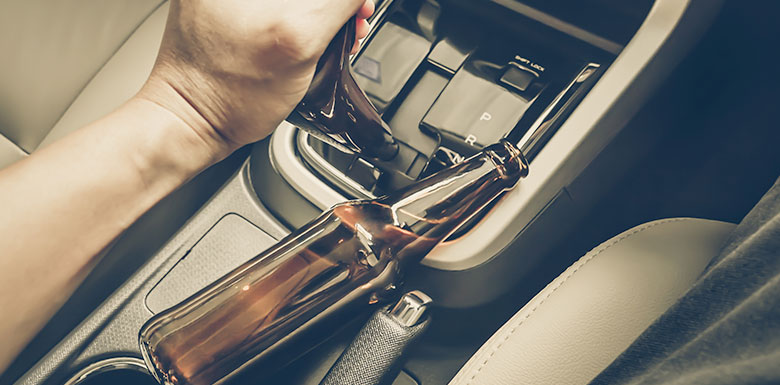How Detroit DUIs Get Dismissed
Jun 16, 2019, by in Criminal Defense, Traffic
The dismissal of your Detroit DUI may be possible if your lawyer finds evidence of police mistake or misconduct. But for this tactic to succeed, your lawyer must get involved in your case during the early stages of the criminal justice process. And even if your lawyer takes the correct procedural steps towards dismissal, there is no guarantee that the judge will agree. The outcome will depend on the strength of the evidence that your lawyer presents, and how skillfully they can argue from those facts. The bottom line is that the dismissal of your DUI case requires the fast intervention of an experienced and proactive Detroit criminal defense lawyer.
At Drias Law Group, we have a proven track record of obtaining positive outcomes in DUI cases. And those clients who come to us right after their arrest, and who avoid making statements to the police have a better chance of obtaining a good case outcome such as a dismissal or acquittal. For this reason, if you are facing Michigan DUI charges, you should act fast and contact a reputable attorney as soon as possible after your arrest. For a free and confidential consultation about your defense options, call us today at (313) 944-0236.
DUI Dismissals Generally Result From a Successful Motion to Suppress
In the American criminal justice system, one of the most powerful tools available to defense attorneys is the motion to suppress. This is a formal request for the judge to remove certain evidence from the prosecutor’s case–often because the suspect’s constitutional rights were violated during the investigation or arrest. In a DUI case, this usually happens for one or more of the following reasons:
- The police pull you over without reason–The police must have a legal basis for making a traffic stop, which requires that they see you breaking the law, catch you driving erratically, or reasonably determine that you or your vehicle are criminally suspect. In other words, the police cannot just pull you over on the hunch that you might be drunk. It’s essential that your criminal defense lawyer cross examine the police, who sometimes admit that they did not have a valid reason for pulling you over.
- The police arrest you without probable cause–Once they’ve pulled you over, the police must observe enough factors about your appearance and demeanor that suggest that you are drunk. Often times, the police gain probable cause after having you submit to a field sobriety test, which you can and should refuse. But even when you fail a field sobriety test, your lawyer can argue that your failure was due to a cause other than intoxication, such as fatigue, stress, or medication.
- The police didn’t read your Miranda rights–You have the right to remain silent and to call a lawyer when you are in police custody. And it’s the police’s duty to inform you of these rights when they place you under arrest. Their failure to give you a Miranda warning usually means that any incriminating statements you made after your arrest may not be used against you at trial.
- The police search your car without probable cause–Sometimes prosecutors use the results of a vehicle search to strengthen their DUI cases. For example, bottles in the backseat or drug paraphernalia in the glovebox may be introduced as circumstantial evidence of your intoxication. But your lawyer may be able to challenge the results of a vehicle search that we conducted without your consent or probable cause.
- The police or medical staff improperly measured your BAC–Whether your blood alcohol content was measured by a breath, urine, or blood sample, strict protocols apply. Any deviation from the protocols could mean that your BAC test is inadmissible evidence. This often happens when the breathalyzer was improperly maintained, or your blood or urine sample was mishandled.
When your lawyer has evidence that any of the above scenarios apply to your case, they will file a motion to suppress. If successful, the motion to suppress will result in the removal of all evidence from the case that was obtained in violation of your rights. For example, if the police pull you over without a valid reason, all of the evidence obtained as a result of the traffic stop should be removed from the case. This can include the officer’s observations of your inebriation, your statements, drugs or alcohol found in your car, and your BA test results.
Once the prosecutor has been forced to remove evidence from their case, your lawyer may be in a position to file a motion to dismiss. You can request the dismissal of a criminal case for a variety of technical reasons, one of which is the insufficiency of evidence. The judge will look at all of the remaining evidence in the prosecutor’s case, and determine whether it is enough to make a trial worthwhile. If the evidence is too thin, a trial is not necessary, and the charges against you may be dropped.
A Good Lawyer Is the Key to Getting Your Case Dismissed
If your lawyer doesn’t proactively look into your case, you may miss the window for challenging the prosecution’s evidence. This is why it’s important for you to work with a defense team that will give your case the attention it deserves. At Drias Law Group, we recognize the importance of acting decisively on our clients’ behalf in the early stages of the criminal justice process. We will fight for your rights and tell the judge that all unlawfully obtained evidence must be removed from the prosecutor’s case. If you’ve been charged with DUI, call us now at (313) 944-0236 for a free consultation.

